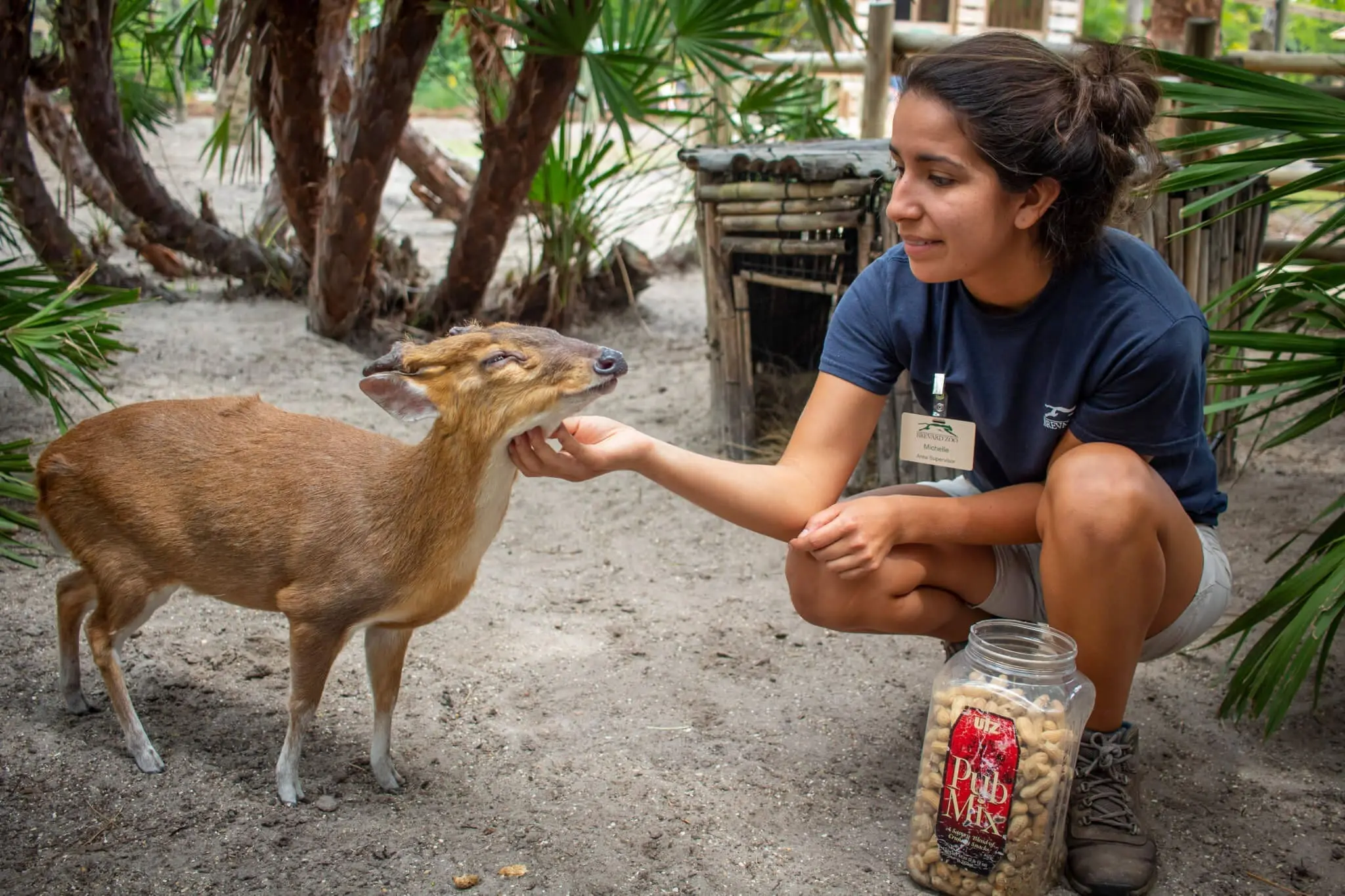
To support our mission of sharing our joy of nature to help wildlife and people thrive, we focus on caring responsibly, professionally and passionately for all of our animals. This includes the 900+ individuals in our care, as well as those who come to the Zoo for rehabilitation and release back into their natural habitats.
ANIMAL WELLNESS REPORT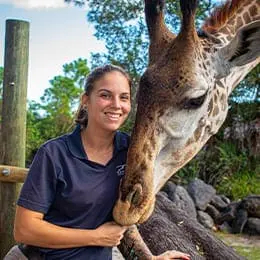 WHAT IS ANIMAL WELLNESS?
WHAT IS ANIMAL WELLNESS?Animal wellness refers to an individual’s collective physical, mental and emotional states over a period of time. An animal experiences good welfare when it is safe, comfortable, well-nourished, and has the ability to express species-typical behaviors, relationships and cognitive abilities.
 NUTRITION
NUTRITIONA healthy body starts with a healthy diet. Working in concert with keepers and veterinary staff and guided by the latest nutritional research, our commissary serves up more than 45,000 diets per year, each precisely packaged and portioned. That translates to roughly 10,000 sweet potatoes, 200,000 crickets and 78 tons of grain!
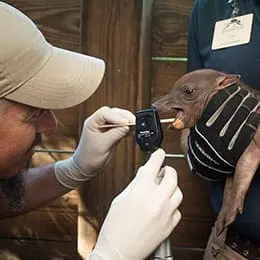 VETERINARY CARE
VETERINARY CAREFrom the tiniest beach mouse to the mightiest giraffe, our world-class veterinary staff is dedicated to ensuring the physical health of every animal in their care. The team is led by board-certified veterinarian Dr. Trevor Zachariah, who oversees the Harris Animal Care Center, Sea Turtle Healing Center and animal commissary.
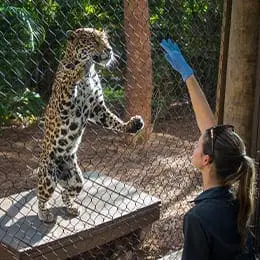 ENRICHMENT & TRAINING
ENRICHMENT & TRAININGEnrichment is any object, food item, smell, activity or other stimulus that triggers natural, species-appropriate behaviors. This includes positive-reinforcement training, which often prepares animals to participate in their own health care; for example, the elderly siamangs present their hands for echocardiograms, our pregnant saki monkeys stand still for ultrasounds and the bears open their mouth for dental inspection.
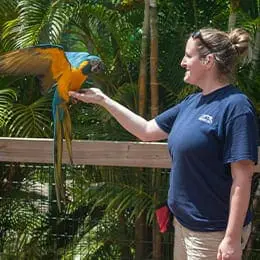 SHARING OUR KNOWLEDGE
SHARING OUR KNOWLEDGEBy communicating our successes with colleagues, students and the community at large, the strides we make in animal wellness improve the care of animals both locally and worldwide.
Through scheduled chats and training sessions, our keepers relay the importance of training, enrichment and nutrition, sometimes recruiting guests to help carry out these tasks.
Our animal care managers are involved in numerous AZA committees and regularly present their work at regional and national conferences.